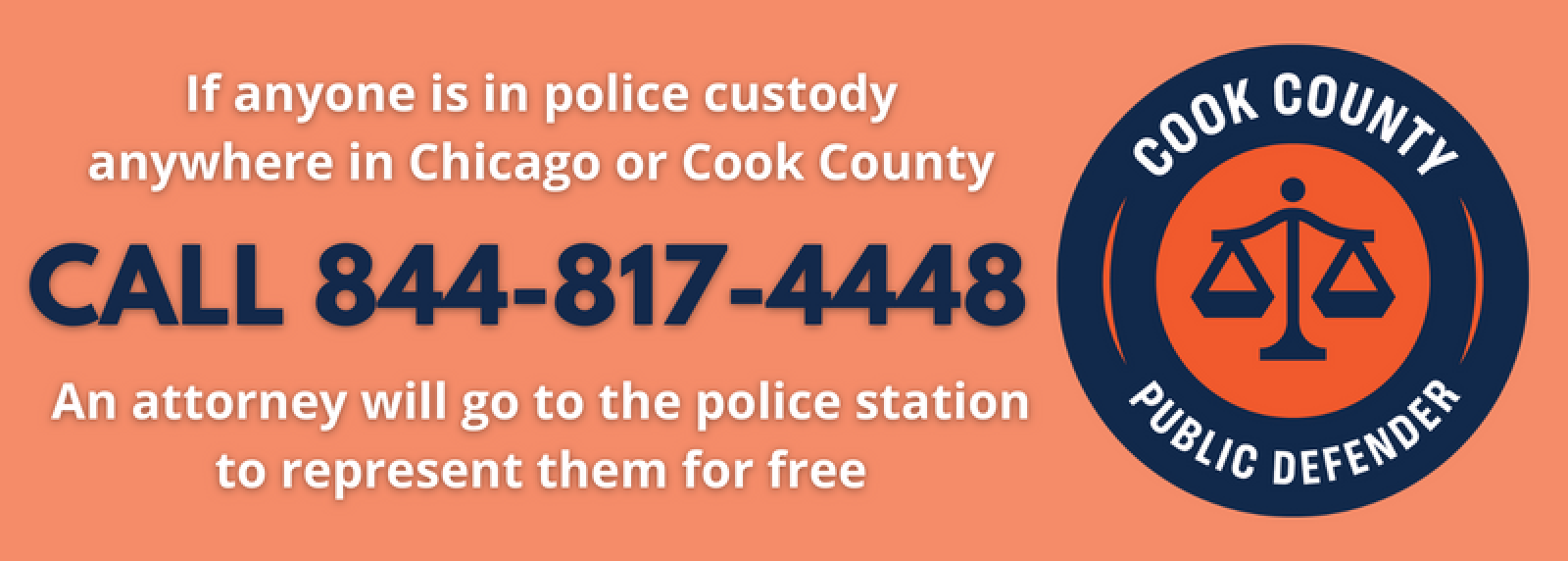Skip to main content
Arrest Hotline
KNOW YOUR RIGHTS!
- If you or someone you know is in law enforcement custody, in Chicago or any other city or town in Cook County, call the Arrest Hotline: 844-817-4448.
- The Arrest Hotline operates 24 hours a day, 365 days a year.
- An attorney from the Cook County Public Defender’s Office will come to the police station to represent you for free.
- This is a free service. There will never be a fee charged for an attorney who comes to the police station to represent someone in custody.
- Do not talk to the police. Anyone in police custody has the right to remain silent. Even a small thing you say can be used against you.
- You have the right to an attorney. You cannot be interrogated until your attorney is present.
- Ask for an attorney as soon as you are in police custody.
- Anyone can call the Arrest Hotline at 844-817-4448, the arrested person or their friends or family.
- Help with warrants:
- If you have a criminal case and you missed a court date, a bench warrant may be issued for your arrest.
- The expert attorneys who staff the Arrest Hotline can also provide information on outstanding bench warrants from the Circuit Court of Cook County.
- Once we are appointed by the court, we provide legal representation at no cost to anyone in Cook County with a warrant.
More About Your Rights:
- A person is considered held in custody whenever he or she does not feel free to leave the presence of the law enforcement officer. This could be in a car, on a street, in a building or at the police station. Anyone held in custody anywhere has the constitutional right to remain silent and talk to a lawyer before answering any questions.
- Every person who is being questioned by the police has a right not to answer their questions, because those answers could lead the police to find evidence against the person who is being questioned. This is commonly referred to as a person’s 5th Amendment Right to Remain Silent. Do not give up your rights (also known as waiving your rights).
- You might feel like by refusing to answer questions, it will make you look guilty. Or you might feel you have a better chance of going home if you answer their questions. But in order to protect your rights and ensure that you are not incriminating yourself, you have the right to talk to a lawyer first.
- The right of a person in custody to get the advice of a lawyer exists before, during and after the police try to question that person. Once a person in custody tells the police that they do not want to answer any questions and that they wish to speak to a lawyer, the law requires that the police must stop asking any questions about any suspected crimes or criminal activity.
- Do not say anything related to the arrest or any matters surrounding the arrest until you have spoken with an attorney who represents you.

